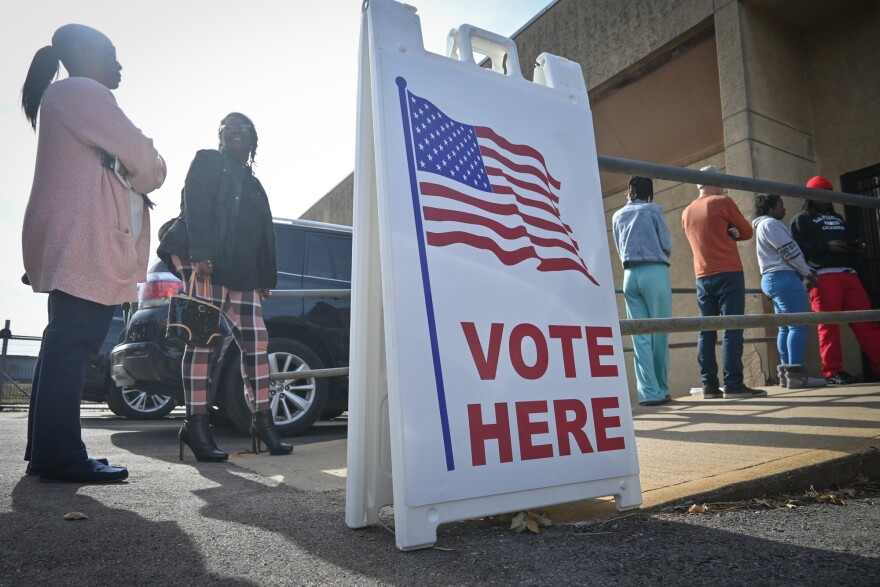The Kansas Supreme Court on Friday endorsed a law limiting how many advance ballots a person can collect for others, but sent lawsuits challenging other controversial election provisions back to lower courts for more work.
The law upheld by the court says it’s a felony offense for a person to collect and turn in more than 10 advance ballots for other people. The justices said a lower court was correct when it dismissed a challenge to that limit.
“The restriction is not a new qualification on the right to be an elector,” Justice Caleb Stegall wrote in the majority opinion.
He also said the act of collecting and returning ballots is not protected political speech.
Kansas Attorney General Kris Kobach and Kansas Secretary of State Scott Schwab were named in the lawsuit. After the ruling on Friday, they issued a joint statement calling it a “win.”
“Kansas's law limiting the number of ballots a person delivers to ten is an important way of limiting ballot harvesting,” Kobach said in the statement.
The law was passed in 2021 alongside one measure that requires election officials to verify signatures on mail ballots before counting them and another that created a criminal offense for impersonating an election official.
The Republican-supported laws were put in place when GOP legislators argued state election laws needed to be tighter to prevent fraud.
But voter registration groups, like Loud Light and the League of Women Voters, argued their basic registration drives could lead to criminal charges if a person simply thought they were election officials. They filed suit in 2021 soon after the laws passed.
The court’s decision leaves the impersonation law – arguably the most controversial one – waiting for further court action. The decision sends the issue back to a district court to determine whether the law should be temporarily blocked.
“While we are excited about this getting resolved, the reality is, the Kansas Legislature did irreparable harm to the democracy of Kansas,” said Davis Hammet, president of Loud Light.
Kansas lawmakers passed a bill to amend that law earlier this year by requiring “specific intent” for a person to be charged with impersonating an election official. But voting nonprofits said the change didn’t do enough to address their concerns, and the bill was ultimately vetoed by Democratic Gov. Laura Kelly.
Calen Moore of the Kansas News Service contributed to this report.
Daniel Caudill reports on the Kansas Statehouse and government for Kansas Public Radio and the Kansas News Service. You can email him at dcaudill@ku.edu.
The Kansas News Service is a collaboration of KCUR, Kansas Public Radio, KMUW and High Plains Public Radio focused on health, the social determinants of health and their connection to public policy.
Kansas News Service stories and photos may be republished by news media at no cost with proper attribution and a link to ksnewsservice.org.

